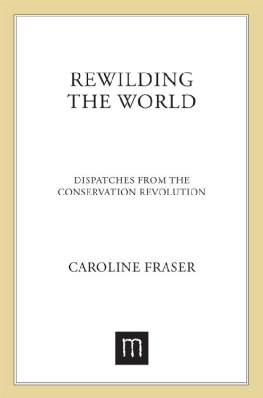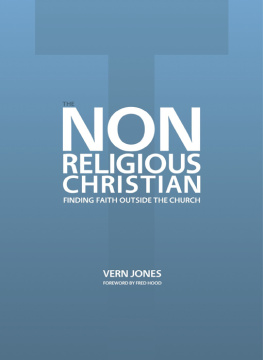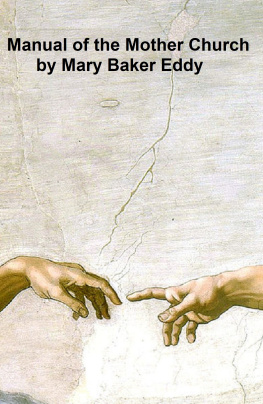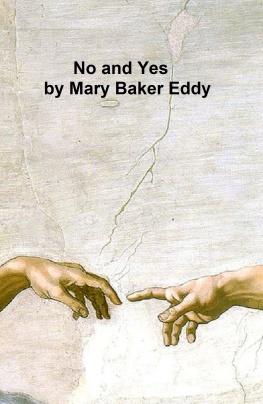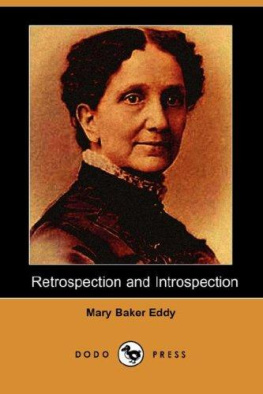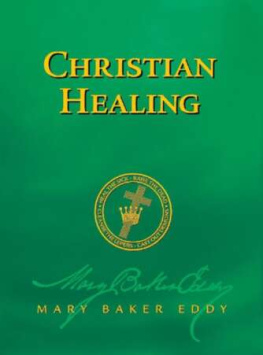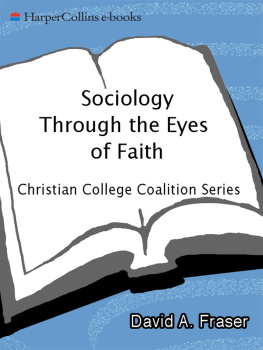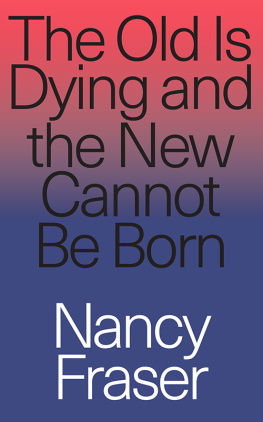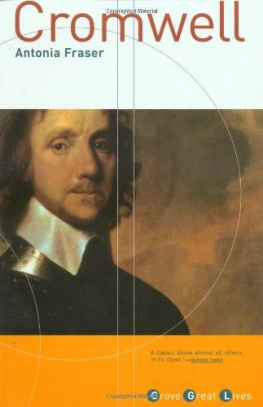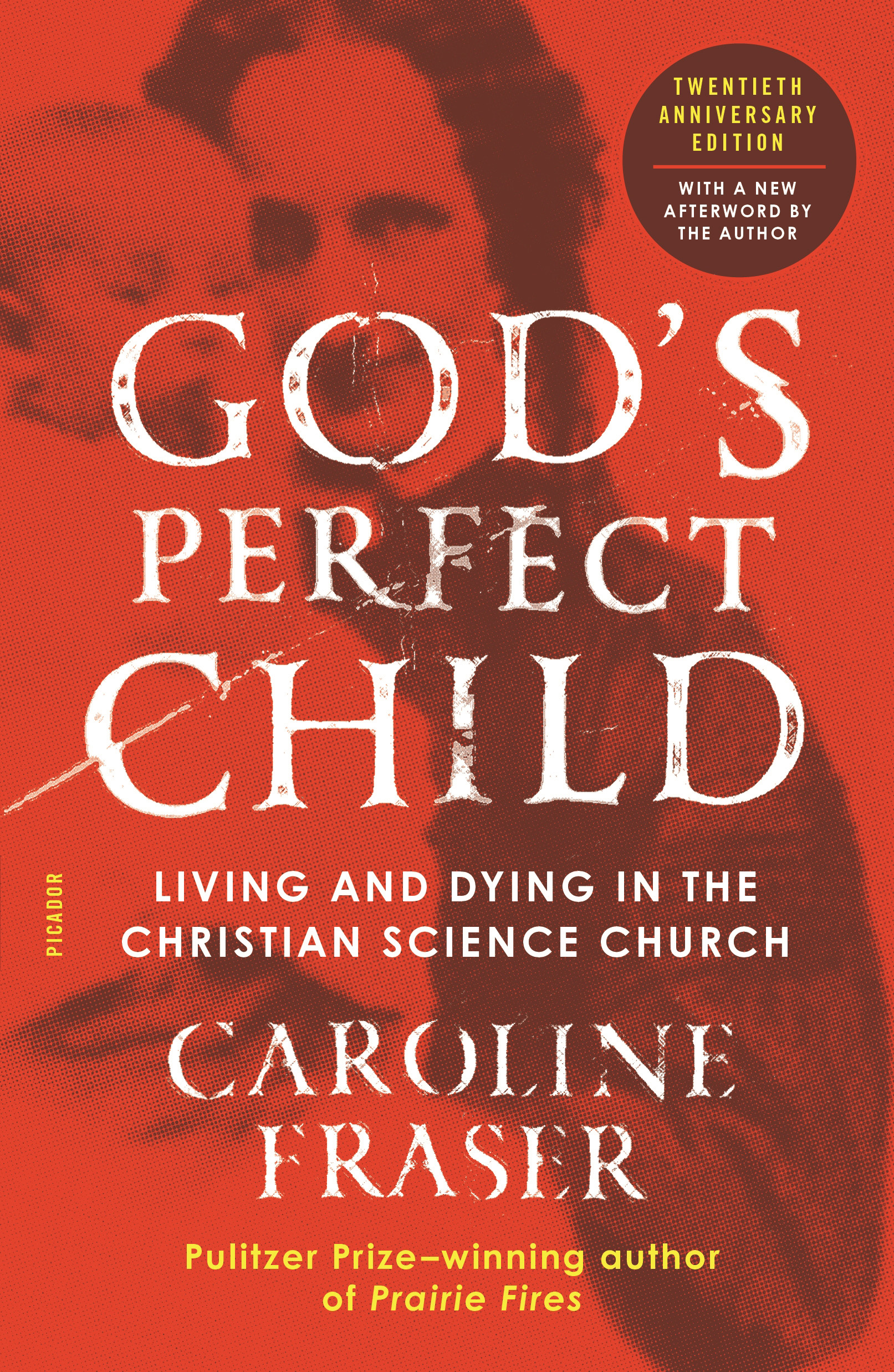You cant pray a lieI found that out.
I was Gods Perfect Child. We all were, every last one of us, from the tiniest baby to the oldest old lady in the First Church of Christ, Scientist, Mercer Island, Washington. God was perfect, and so were we.
In Sunday school, we learned that There Is No Spot Where God Is Not. God was Everywhere and Everything, Omnipotent Supreme, Father-Mother, All-in-All, and we were His image and likeness. God was All. Matter was nothing. At the age of four or five, I gazed at the top of the Sunday school table, at my knees going under it, at the plastic chairs, at the scratchy sisal carpet. The table and the chairs and the carpet and the knees looked real, but they werent. They werent even there. They were matter, and matter was Error, and Error did not exist.
I believed all this for many years, the years when I attended the Christian Science Sunday school. I learned the books of the Bible, the Ten Commandments, the Beatitudes, and Mary Baker Eddys Scientific Statement of Being. I learned how to know the truth by thinking over and over again that I was spiritual and perfect, not material and imperfect. For a time I believed that our Sunday school superintendent, an elderly lady with a halo of white hair, who led us in singing our hymns and saying the Lords Prayer, was Mary Baker Eddy, our Beloved Founder and Leader, the author of Science and Health with Key to the Scriptures, our Textbook.
We were always talking about Mrs. Eddy and her book. We said her name slowly and lovingly. We stroked the books, tracing with our fingers The Cross and The Crown embossed on the soft old cloth covers. We talked about her every Sunday. Even after I realized that our superintendent was really old Mrs. Bolton, who had a big house down by the water, I continued to believe that Mrs. Eddy was still alive somewhere, with white hair like my grandparents, because we talked about her as if she were.
The Sunday school was a big room, sunny, with two walls of glass. There were hardly any decorations. There were no toys. We were not there to have fun. We were there to fight off Mortal Mind, where Error came from. Mortal Mind had gotten inside our heads, under our hair. Divine Mind was All Powerful but kept getting away from us. We couldnt keep our Mortal Minds on the Divine Mind. We were full of Error. Mary Baker Eddy was there to remind us.
It was hard to keep the whole thing straight, so we had to pray a lot and study, study, study. Mortal Mind was thinking we were hurt when we fell down. Mortal Mind was accidents. Mortal Mind was forgetting to go to the bathroom before Sunday school and wetting our pants. Mortal Mind was being jealous or hateful or nasty. Mortal Mind was having a tantrum. Mortal Mind was crying.
The hardest thing to understand about Mortal Mind was the fact that it didnt exist. We tried hard to know that Divine Mind was All and that there wasnt any room left for bad, old Mortal Mind. If we could know that we were Divine Mind, everything would get better. Wed stop crying. We wouldnt even want to cry. Wed never do anything wrong or feel bad, even if somebody pinched us or pulled our hair. Even if somebody did those things, we could squeeze our eyes shut and know that we were Gods Perfect Child.
Often, on the drive to Nana and Grankos house after Sunday school, I would have trouble knowing that I wasnt carsick. Car sickness was Mortal Mind. Throwing up was Mortal Mind. I ran through my list of silent prayers that were supposed to make me feel better: There Is No Spot Where God Is Not, I Am Gods Perfect Child, Man Is Not Matter, snatches of the Scientific Statement of Being. But concentrating on the words made my hot head spin. I waited for God to fill up the world like the air in a balloon, but the air in the car just got worse and worse. Then I threw up, a horrible explosion of Error, the vomit snaking down my Sunday dress and the seat of the car. Now I was Error. Error was in me. Error was me.
My father thought so too. He was a real Christian Scientist, a Member of the Church. So were Nana and Granko. We had to pull over by the side of the road and clean the vomit out of the car, with hankies, so they wouldnt see it. When Error came calling, we werent supposed to tell.
But it came so often. The ladies in Sunday school told us that Error was like a little man, a wicked little elf sitting on our shoulders, whispering words in our ears. Whispering Sin, Sickness, and Death. We read the Ten Commandments. Thou Shalt Not Kill. If we listened to the little man, we could kill with our own words, our own thoughts. If we thought bad things, or said them, they would happen. So we had to think good thoughts all the time.
But all the time was too much. I was always throwing up, or wetting the bed, or sneezing, or saying the wrong thing at the dinner table. One day at East Seattle Elementary, during the first grades rehearsal for assembly, marching in line into our assigned spaces on the bleachers, my head spinning, I suddenly threw up in the middle of the gym, on the gleaming, waxed floor where the boys played basketball.
Why didnt you tell me you were sick? Mrs. Bruhn cried. Mrs. Bruhn was not a Christian Scientist, and she didnt realize that I couldnt have told anyone that I was sick. You couldnt say sick. Saying it made it real. I was sent home, in more Mortal disgrace than the exasperated Mrs. Bruhn could ever have known. Because my parents were still at work, I had to go stay with the old lady who lived next door. She was not a Christian Scientist, but she was nice anyway. She made me lie down on her nubbly couch and covered me with one of her crocheted afghans. I lay there through the afternoon, thinking and thinking. What was the matter with me? Why wasnt I Gods Perfect Child? Why couldnt I Know the Truth? If There Was No Spot Where God Was Not, where was I?
When I was ten, we built a boat. It was a sailboat, a thirty-foot sloop, with a poured fiberglass hull and a teak cabin and toe rails. It slept four uncomfortably and six with great discomfort, if two people slept on the galley table. My father often boasted that the design of our boat guaranteed that it would roll: if its mast ever went below the water, it would roll back up. It was christened the Sancocho, Spanish for a kind of stew, but we always just called it the boat. It had a pump toilet and one pump faucet for cold water. As we sailed around Puget Sound, the boat began to make me wonder about Christian Science.
Alarming things were always happening on the boat. Innocent of seagoing skills, my mother, father, older sister, and I, we were often lost, marooned on mud bars, caught in gales or fog, or bashed by deadheads, floating logs the size of our mast. Sails or lines inopportunely fell in the water. We had a depth sounder, life vests, and a compass, but the compass was brought out only during navigational emergencies, as a kind of offering to the gods of rationality, my mother performing frenzied calculations while my father shouted directions. We didnt have a radio because we knew we would never have an accident requiring the use of one. We also had no lifeline, the rope or guard line strung on stanchions around the toe rail, to clip ourselves to in bad weather. We had no lifeboat, except for an inflatable rubber dinghy that took a long time to blow up. We didnt need radios or lifeboats or lifelines. Christian Science was our Coast Guard.


